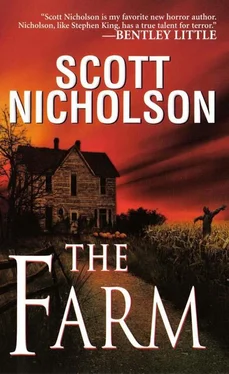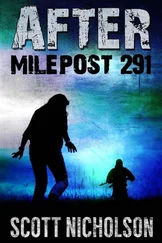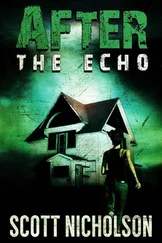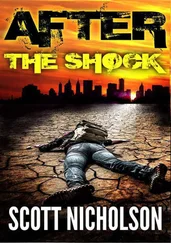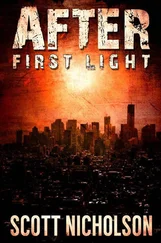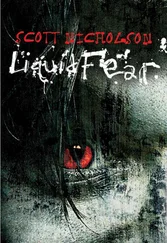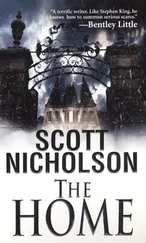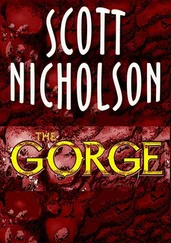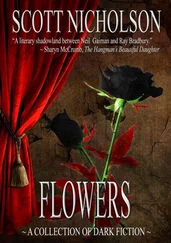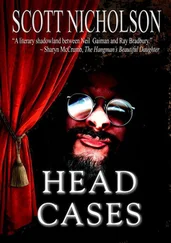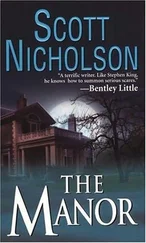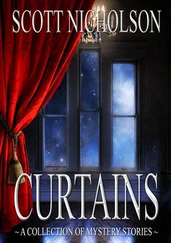Scott Nicholson - The Farm
Здесь есть возможность читать онлайн «Scott Nicholson - The Farm» весь текст электронной книги совершенно бесплатно (целиком полную версию без сокращений). В некоторых случаях можно слушать аудио, скачать через торрент в формате fb2 и присутствует краткое содержание. Жанр: Триллер, на английском языке. Описание произведения, (предисловие) а так же отзывы посетителей доступны на портале библиотеки ЛибКат.
- Название:The Farm
- Автор:
- Жанр:
- Год:неизвестен
- ISBN:нет данных
- Рейтинг книги:3 / 5. Голосов: 1
-
Избранное:Добавить в избранное
- Отзывы:
-
Ваша оценка:
- 60
- 1
- 2
- 3
- 4
- 5
The Farm: краткое содержание, описание и аннотация
Предлагаем к чтению аннотацию, описание, краткое содержание или предисловие (зависит от того, что написал сам автор книги «The Farm»). Если вы не нашли необходимую информацию о книге — напишите в комментариях, мы постараемся отыскать её.
The Farm — читать онлайн бесплатно полную книгу (весь текст) целиком
Ниже представлен текст книги, разбитый по страницам. Система сохранения места последней прочитанной страницы, позволяет с удобством читать онлайн бесплатно книгу «The Farm», без необходимости каждый раз заново искать на чём Вы остановились. Поставьте закладку, и сможете в любой момент перейти на страницу, на которой закончили чтение.
Интервал:
Закладка:
"Sure thing, Mr. Smith. Can you pay cash today instead of saving up my time until Friday?"
"Of course." Gordon removed his gloves and laid them across the staves of the wheelbarrow. He thumbed a twenty from his wallet and handed it to Odus. As Odus's fingers closed on the money, Gordon grabbed his wrist and pulled him off-balance. Though Odus weighed two hundred pounds, Gordon had leverage and an advantage in both height and weight. Odus found himself looking through the distorted left lens of Gordon's eyeglasses. Again Odus was reminded of the goats, and the professor's pupils seemed to take on that same narrowed and flattened aspect.
"Know them toy their fruits," he said, his breath rank with pipe tobacco and garlic.
Odus nodded as Gordon released him, then tucked the money in his pocket and headed toward the gate. He took one last look to make sure the scarecrow still hung on its stake. It did though the ragged brim of its hat was angled even lower, as if the stuffed head had dipped in a prayer of resignation.
He climbed in his Blazer and drove away as the goats came down from the pasture to see what Gordon was serving for lunch.
Chapter Nine
That was what Katy was thinking as she went down to the barn, just as the dust from Odus's Blazer settled over the driveway. Gordon had a half dozen guinea hens and they laid little brown eggs almost every day. The nesting boxes were arrayed across the front of the barn, screened with chicken wire tied in a series of hexagons. The nests had little holes carved in the front and were covered with rubber flaps so the gatherer, in this case Katy, could reach an arm into the dark box and feel around in the straw for eggs. Gordon had explained the design discouraged possums, foxes, and other lazy ovum-stealing predators.
But that didn't make Katy feel any better about reaching through those black little curtains that looked all the world like sharp, rotted teeth. At least she didn't have to go inside the barn, where the goats had spooked her and Jett had suffered some sort of delusion.
The farm was too quiet. She'd expected a big change from the city, but she had imagined barking dogs, crowing roosters, badly tuned tractors, and the rattle and clank of distant, rusty machinery. This was autumn. Where were all the chain saws turning hardwood forests into firewood?
The guineas were strangely hushed in their boxes and the goats watched her as they usually did, standing stiff-legged in the field, their beards drifting slightly in the breeze, ears flapping at the flies. In her mind, she imagined them skinned for meat, their oblong pupils regarding her from the slope of their skinned skulls.
She shook the woven basket farther up her left elbow and reached into the first nest. Gordon didn't have names for the hens, so Katy thought of them collectively as "Martha." The first one was M, the second one A, and so on. If they were fryers instead of laying hens, she couldn't bear to name them. It was bad enough just eating their eggs. Even though they were unfertilized, it was hard not to think of the yolks as little abortion victims. She had never considered such a thing before, despite being a lifelong omelet lover. Funny how being on a farm made you more aware of and connected to the food, whether it was the seeds that grew into turnips or the steers that turned into ground round.
"My, M, you must be feeling your oats today," Katy said, finding two eggs in the first nest. She laid them gently in the basket as M clucked in either motherly anguish or pea-brained hunger. Katy peered through the chicken-wired slot at A in the next box. All she could see was the serrated, black-and-gray pattern of the hen's feathers. A's head was tucked under one wing, making her look like a soft wad of thrift-shop rags.
"Okay, girl, here I come." Katy reached her arm into the curtained slot. She felt around in the straw, finding nothing. Maybe A was sitting on her egg. The hens sometimes did that, driven by an instinct stronger than the memory of all the previous unhatched eggs that had gone before. Katy felt the soft downy feathers of A's chest, then slid her hand underneath.
She nearly broke her wrist snatching her hand free. Something cool and scaly had writhed away from her touch.
It wasn't a chicken leg. This thing had rippled.
Did snakes eat eggs? Could one have crawled through the curtain, or dropped onto the wire from above and slithered into A's nest?
Katy didn't know, but she wasn't about to stick her hand in to find out.
But what would Gordon say when he saw only two eggs in the refrigerator? He would ask why, and Katy would have to say "Chickenshit." Because she was too chickenshit to stick her hand into the nests. And Gordon's forehead would furrow slightly, accompanied by a gratuitous, understanding, demeaning smile, all the while his eyes saying, "I thought I'd found a replacement for Rebecca, but all I got was this skinny Irish redhead who can't even pluck an egg, much less a whole chicken."
"Chickenshit, chickenshit, chickenshit," she said to herself. She had placed a moratorium on cussing because she didn't want Jessie picking up the habit, but she was alone and who gave a good goddamn what the goats thought?
She looked around for something to poke into the nest. Maybe if she could get A to move, she would be able to see the snake. Or whatever it was.
God, please let it be a snake, because, sure, they are scary as seven hells, but at least snakes live and breathe and are listed in zoology catalogs.
Katy was about to give up, to go out into the cornfield to find Gordon, when she remembered the pitchfork inside the barn. She hadn't mentioned the scarecrow to Gordon, because he would have laughed. And she had been scared out of her wits by Jett's strange bout of amnesia. And then there was the goat that had somehow locked itself in the loft. The barn was a place to avoid. Nothing good seemed to happen there. Just ask all the livestock that had been slaughtered over that straw-scattered floor, that had been decapitated and strung up on chains and turned from livestock into deadstock.
But the pitchfork was a weapon. If she could hoist a skewered snake before Gordon, show off her grit and determination, then perhaps Gordon would at last accept her as a suitable replacement and draw her into his arms at midnight, accept her and take her and finally make her his wife.
Besides, next to a confrontation with a snake, a little trip inside the barn was nothing. The pitchfork was hanging twenty feet from me front sliding doors. She could be in and out with barely enough time to smell the trampled manure. And once she had the pitchfork, even a goat wouldn't scare her.
She set the basket on top of R's nesting box and went to the sliding doors. The oaken, crudely planked doors were suspended on rusty wheels that rolled across a steel track overhead. The left one was partially pulled back, and cool air wafted from the opening. The midmorning sun cut an orange sliver into the darkness, but the great, hulking black beyond gave off an almost palpable weight, like oily water held back by a dam.
Twenty feet. Ten steps max, each way.
She leaned against the edge of the left door and shoved. It slid across its track with a metal scream. The sun poured in at her back like a sacred ally. She was sweating, though the temperature was in the fifties. She looked into the pasture. The goats seemed curious and faintly amused.
"Chickenshit, chickenshit, chickenshit."
Katy squinted into the barn, trying to locate the pitchfork on its wooden-pegged resting place.
Twenty feet. She could be there and back before you could say "Children of the Corn, Part Thirteen."
Now she saw it, hanging among some coils of rope, a thick length of rusted chain, a strange set of clamps that looked like a medieval torture device, and a crooked-handled scythe whose blade was brown with age. She didn't remember the scythe from before, but it didn't look like an effective weapon against a snake.
Читать дальшеИнтервал:
Закладка:
Похожие книги на «The Farm»
Представляем Вашему вниманию похожие книги на «The Farm» списком для выбора. Мы отобрали схожую по названию и смыслу литературу в надежде предоставить читателям больше вариантов отыскать новые, интересные, ещё непрочитанные произведения.
Обсуждение, отзывы о книге «The Farm» и просто собственные мнения читателей. Оставьте ваши комментарии, напишите, что Вы думаете о произведении, его смысле или главных героях. Укажите что конкретно понравилось, а что нет, и почему Вы так считаете.
